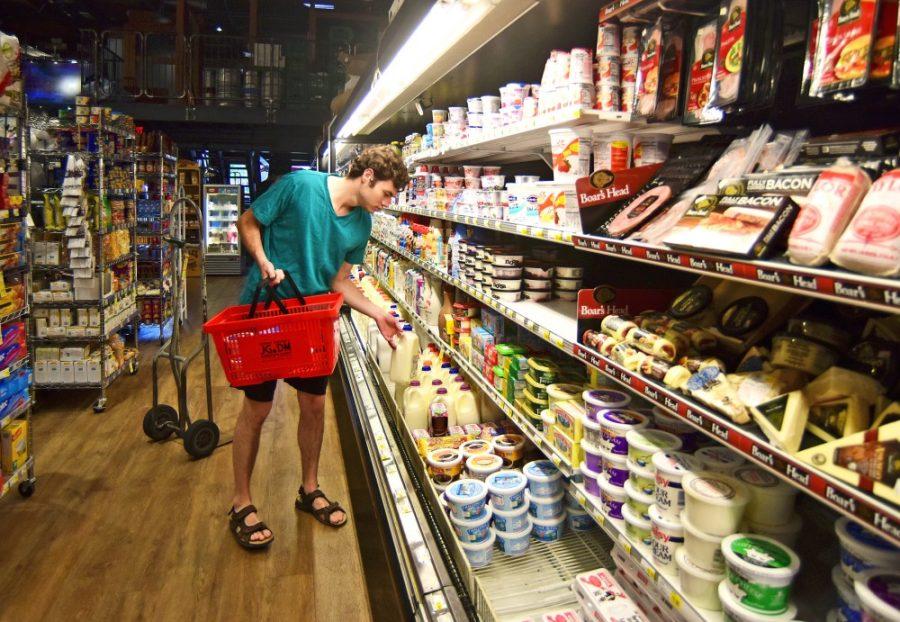What happens to uneaten food?
This is a question that people often ask when it slides off of our plates and into our garbage cans. The answer is pretty clear, it will go into a garbage truck, which will take it to a landfill.
But what happens to the food at grocery stores that is still packaged, but is close to or at expiration?
For me, this answer is a no brainer. I have been volunteering on a regular basis at my local food bank since I was 12 years old.
It wasn’t until recently that I realized there are a lot of people who do not know where the food in the grocery store goes when it doesn’t make it off the shelves.
I got into a fight with one of my roommates because she is notorious for buying too much food — a classic case of “your eyes are bigger than your stomach.”
RELATED: Tucson Meet Yourself offers up culinary delights
She isn’t home often because she is a full-time student and works two jobs, yet she buys all sorts of food produce, to bakery items to meat.
An alarming amount of this food ends up rotting in our fridge or on the counter, and makes its way to the trash can without ever getting the chance to make it onto a plate.
One time I’d had enough, and we got into a contentious argument over her grocery shopping habits.
After going back and forth for a little bit I said, “How could you throw away perfectly fine food when there are hungry people out there who can’t even afford to buy food at all?”
To which she responded, “It’s not like they’re going to get it anyway.”
That is when it clicked for me. Most people’s interactions with food banks are the occasional canned food drives, where they make sure to stipulate that the food has to be non-perishable.
However, I know from my experience with the food bank that most grocery stores send shipments of food to the food bank when they have more food than will be bought by the shoppers.
At the food bank that I worked at, the local grocery stores had a certain day of the week that they would gather all of their excess food and donate it to the food bank, where it is date checked, sorted and put on the shelves for our customers.
So to me, what she said was about as far from the truth as she could get.
I think this mentality makes it really easy for us to be glutinous when it comes to our food consumption.
I remember being a kid and people always saying “but what about the kids in Africa?” whenever someone wasted food.
RELATED: Woops! selling macaroons to fight breast cancer
As I got older the response would be the same as my roommates, “it’s not like they’re going to get it any way.”
Hunger is obviously an important issue in Africa and I think it should be recognized. But there are also hungry people right outside of your door, in our Tucson community — and you have the ability to do something about it.
I talked to a few local grocery stores, Safeway on Broadway, Albertsons on Campbell, and Sprouts on 1st Ave, who all confirmed that they send their food that is close to expiration to local food banks.
In Tucson we have options like the Community Food Bank of Southern Arizona, and we even have an on-campus food bank called Campus Pantry at the UA.
By overbuying food from our grocery stores and never eating it, it isn’t a far stretch to say that we are essentially taking that food right off of the plates of our own less-fortunate community members and throwing it right in the trash.
So next time you are at the grocery store contemplating, will I really eat this salad? Really, truly, think about it; will you eat that salad? Because if you won’t, I’m sure someone in our community will.
Follow Claudia Drace on Twitter









